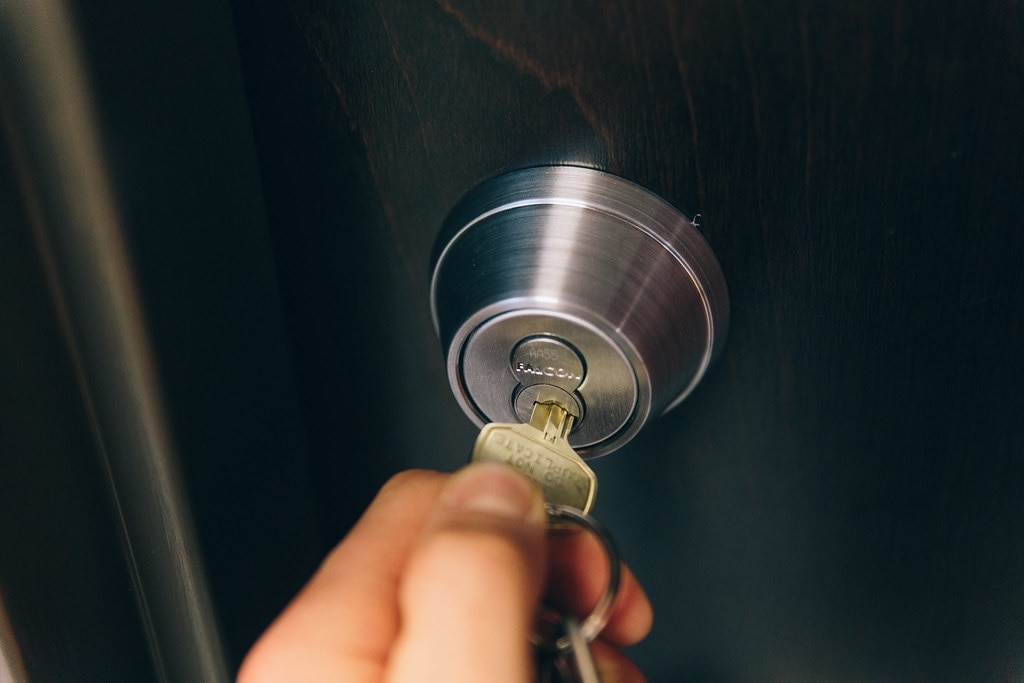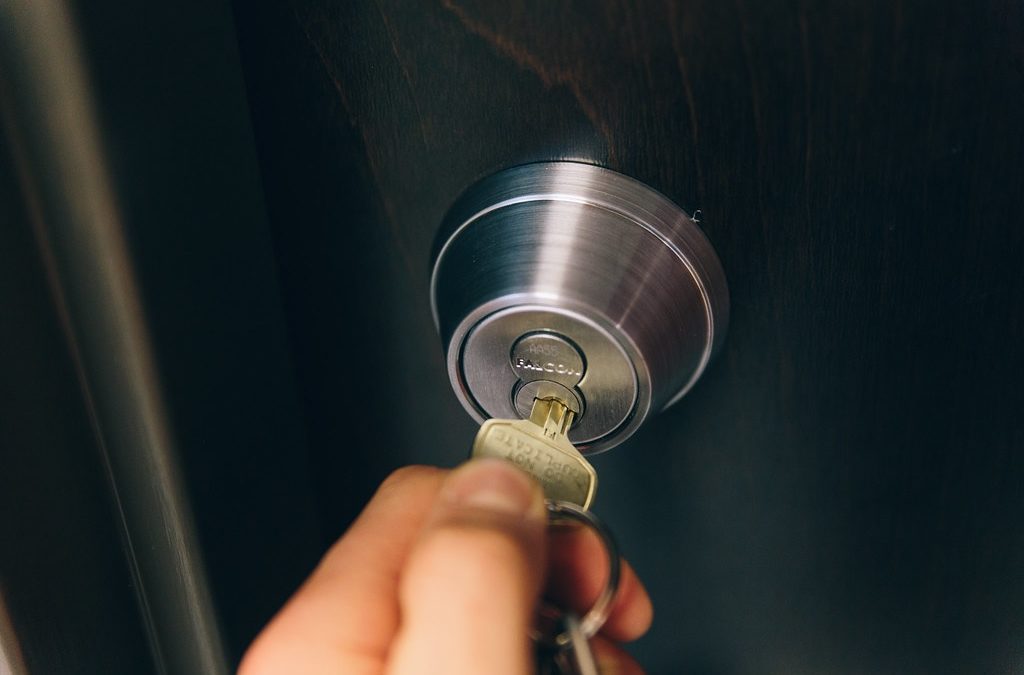
Summer is here and it’s time for that long-awaited vacation is on the horizon. It’s also prime time for home burglaries. Every 15 seconds, a home is burglarized in the U.S. — mostly in July and August when many families go on vacation.
So, how do you keep your house safe and sound while you’re away? Walton Gas has compiled the following tips to help you secure your house. Some require a little investment and planning, but taking these steps now could ensure a happy homecoming.
Multiple studies show burglars tend to
avoid homes with security systems.
1. Get a professionally monitored home security system.
Multiple studies show burglars tend to avoid homes with security systems. Locally owned and operated EMC Security offers affordable, professional security system monitoring with no contract required. Starting at $16.95 a month, EMC Security costs nearly half as much as most home security systems. Monitoring is available for landline, broadband and cellular. Also offered as add-ons are home automation features such as lighting, climate, door-lock control and video monitoring. Through a mobile app, users can control these features and view video streams remotely at their convenience. This small investment is well worth your peace of mind while on vacation — or even when away at work.
Already have a security provider? Remember to always alert your security monitoring provider when you will be away for an extended period.
2. Light up.
A dark house — inside and out — announces you aren’t home and provides opportunity for burglars. Keep things illuminated inside by installing smart plugs that can turn any electronic device into one that can be controlled remotely or put on a schedule to create the illusion that someone’s home. Outside, install security lights in burglary-prone areas such as the back door or sides of the house. Most security light models are either motion activated or come on only at night, so you don’t have to worry about them wasting a lot of energy.
Keeping spare keys stashed outside
your house is never a great idea.
3. Add a smart lock.
Keeping spare keys stashed outside your house is never a great idea. Your hiding spots aren’t as clever as you think. Instead, install a smart door lock that lets you unlock your door remotely from your smartphone and grant temporary access with expiring codes. If you have a neighbor checking in on the house or a pet sitter coming to take care of the dogs, you can keep track of exactly who goes in and out of your house and terminate access once you’re home again.
4. Use a video doorbell.
A video doorbell offers a first line of defense for homeowners, allowing you to see and speak with whoever is outside — even if you are on a beach or a continent away. Look for a doorbell model that records and stores video of visitors that approach your door while you’re away or unable to answer.
5. Schedule the HVAC.
Cooling an empty house is a waste of energy and money. With a programmable thermostat, you can minimize air conditioning while you’re away and schedule it to return to a cooler temperature just before you arrive home. If you invest in a smart thermostat, you can check in on your home’s temperature from afar and make adjustments if needed.
Property damage from water leaks is the
second most common home insurance claim.
6. Install leak sensors.
Most professional security monitoring services include fire protection, but don’t forget to protect your home from costly flood damage, too. Property damage from water leaks is the second most common home insurance claim, with each claim averaging $8,000. Ask your security service if water leak sensors are an add-on option, or self-install a monitor that will send an alert to your mobile device if a leak occurs.
7. Plan ahead.
Nothing says “I’m not home” like tall grass and a stack of newspapers in the driveway. Arrange to have someone mow the lawn. And don’t forget to do a thorough shrubbery trimming around the house exterior to eliminate convenient hiding places for burglars. Stop mail and newspaper deliveries, or have them regularly picked up by a neighbor. You can sign up online to have the USPS hold your mail at your local post office for free for 30 days.
8. Unplug electronics.
Unplugging nonessential electronics — TVs, computers, coffee makers, fans, lamps —can reduce the risk of fire and save energy. Unplugging devices protects them against electrical surges, which can short out expensive equipment or cause fires. Electrical fires account for 13 percent of total residential fires in the United States.
9. Lock up.
Yes, you’re eager to go, but before you head out the door take the time to perform a final security check. Make sure all doors (including garage doors) and windows are shut and locked. Close curtains or blinds to obscure a would-be thief’s view of televisions or other valuables displayed in rooms. Lock hand-held electronics, small valuables and money in a safe or hide them well. Check to be certain the security system is armed, timers are set and smart devices are correctly programmed.
Resist the temptation to broadcast your travel plans.
10. Don’t announce you are away.
Sure, you’d love to brag to everyone that you’re on vacation, but don’t. Resist the temptation to broadcast your travel plans on your voicemail, email autoreply or social media. Warn those traveling with you not to post photos (until after you return) or communicate your travel itinerary on Facebook, Twitter or Instagram.
